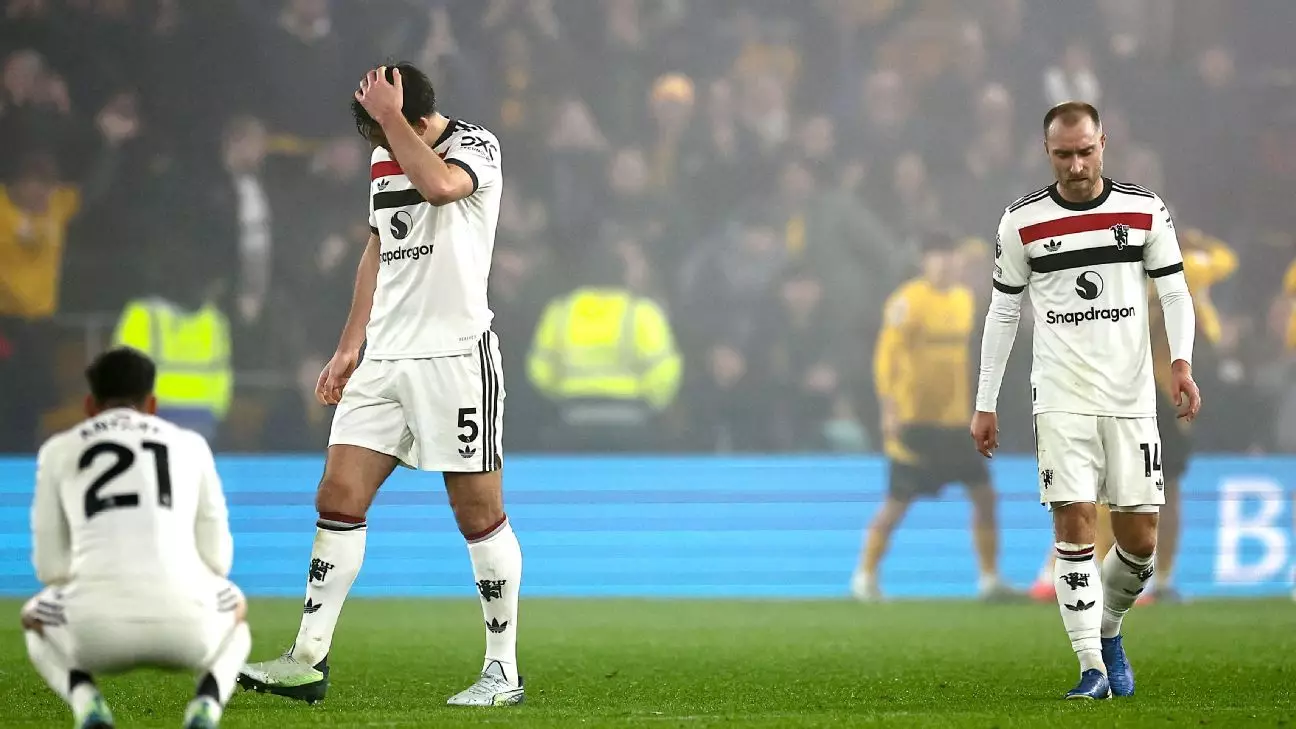Manchester United’s recent 2-0 defeat to Wolves underscored the team’s alarming decline. This match marked United’s third consecutive loss, revealing deep-rooted issues that have surfaced since the appointment of manager Ruben Amorim. Despite high hopes surrounding Amorim’s arrival, the team has only managed to secure two victories in his eight Premier League games. Such a record raises questions about the efficacy of his strategies and the team’s mental fortitude.
The match took a critical turn only two minutes after the second half commenced, when captain Bruno Fernandes received a red card. This pivotal moment significantly hampered United’s chances, demonstrating how quickly fortunes can shift in football. Subsequently, Wolves took the lead with Matheus Cunha scoring directly from a corner kick, exposing United’s vulnerability during set pieces—a significant tactical weakness that Amorim must address. Hwang Hee-Chan’s late goal sealed the result, leaving fans to wonder where the resilience needed to compete at the highest level has disappeared.
Amorim’s Reflections
In his post-match comments, Amorim acknowledged the need for increased aggression on the pitch. His statement, “We lack a little bit of aggression, but we don’t train,” reveals a troubling aspect of the team’s current state. Relying heavily on matches for improvement rather than structured training could hinder their development. The manager’s assertion that they must enhance their “relationships” speaks to a lack of cohesion and synergy among players—an essential element for a successful football team.
Challenging the Status Quo
The recurring losses signal a critical juncture for the club. Amorim, having succeeded Erik ten Hag, finds himself under immense pressure to deliver results. Currently, United’s record shows only four wins across all competitions, an unacceptably low figure for a club with such a storied history. This downward trend is particularly troubling, as it’s the first time since September 2023 that they have suffered three consecutive losses across competitions.
Amorim’s approach seems to require immediate reevaluation. The team’s inability to control matches, coupled with a frail defense during dead-ball situations, manifests as a recipe for disaster. The call for restructuring both training methods and on-field strategies is clearer than ever. Achieving the necessary balance between aggression and control is crucial if Manchester United aims to return to its former glory.
The ongoing struggles of Manchester United under Ruben Amorim signal a critical need for introspection and a renewed commitment to training and tactical direction. With the club’s historic reputation at stake, the urgency for a turnaround cannot be overstated. Fans await a response that will help reignite the passion and performance associated with the iconic club.

